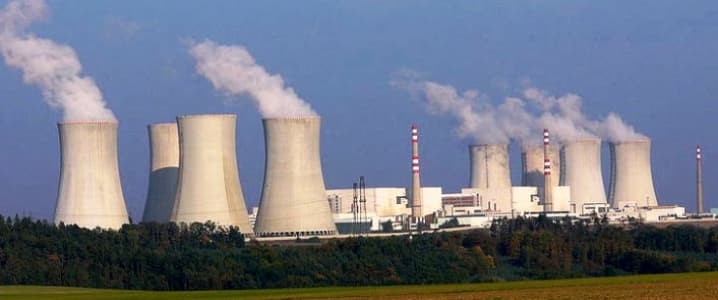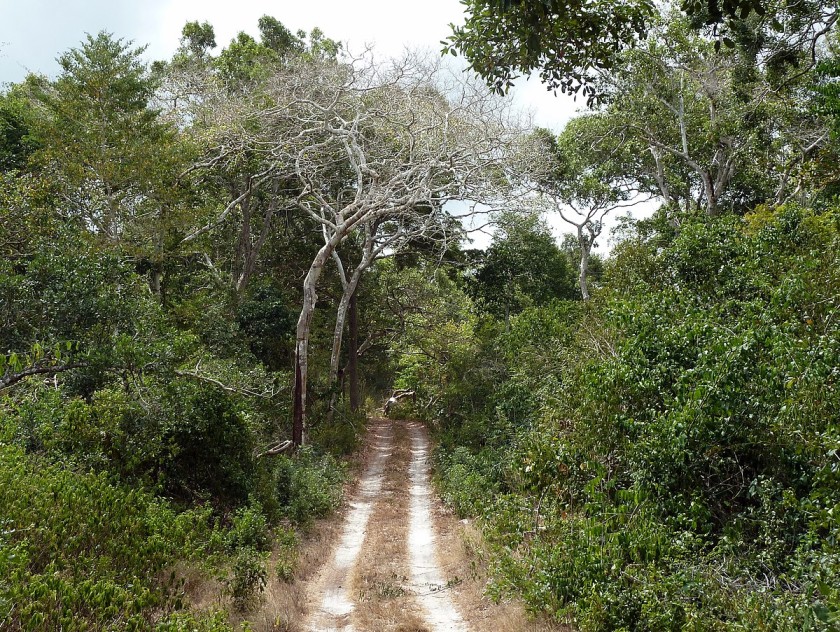Kilifi residents rally against proposed Sh500 billion nuclear plant

The Sh500 billion project aims to produce 1,000 megawatts of power by 2034 to address Kenya's growing energy requirements and boost industrialisation.
The proposed nuclear power plant in Uyombo village, Matsangoni area, Kilifi County, has sparked a wave of opposition from environmentalists, local leaders, and international experts.
Managed by the Nuclear Power and Energy Agency (NUPEA), the Sh500 billion project aims to produce 1,000 megawatts of power by 2034 to address Kenya's growing energy requirements and boost industrialisation.
More To Read
- Kwale Governor Fatuma Achani vows legal action against land grabbers
- Tensions flare as Kwale leaders demand removal of KWS from Diani-Chale Marine Reserve management
- Kilifi set to phase out KWS' control of Malindi and Watamu marine parks - Governor Mung’aro
- Africa’s freshwater ecosystems depend on little creatures like insects and snails: Study maps overlooked species
- Trump seeks Russia’s help to mediate nuclear talks with Iran
- UN summit ends without agreement on biodiversity funding
However, the initiative has drawn criticism from various quarters concerned about its environmental and social impacts.
The Executive Director of the Centre for Justice, Governance, and Environmental Action (CJGEA), Phyllis Omido, leads a coalition of stakeholders from Kenya, Russia, Switzerland, Sweden, and South Africa in contesting the project. These experts plan to conduct an independent environmental impact assessment (EIA) using artificial intelligence (AI) to ensure thorough and unbiased scrutiny.
“For long, NUPEA has been saying we don’t have the expertise, among other things, to oppose their project. Now we have received reinforcement and backing from experts. Moving forward, we will be talking from a point of knowledge,” Omido stated.
She emphasised that their environmental impact assessment would focus on Arabuko Sokoke Forest and Watamu Marine Park, critical ecosystems that could suffer irreversible damage from the nuclear plant.
Kilifi Women Representative Gertrude Mbeyu has also been vocal in her opposition to the project. Mbeyu highlighted the lack of adequate public consultation and the potential hazards associated with nuclear energy.
“We don’t want this nuclear plant in Uyombo or anywhere in Kilifi County or Kenya because we have read about nuclear power plants and we know the truth they are keeping from us," she declared, but did not disclose the information she alleged was hidden.
Mbeyu also pointed out that the government allocated Sh2 billion for the project in the 2024 finance bill, which was ultimately rejected.
She further criticised NUPEA for not engaging the local community on the potential risks, such as the long-term dangers of radioactive waste.
 Arabuko Sokoke Forest. (Photo: Handout)
Arabuko Sokoke Forest. (Photo: Handout)Arabuko Sokoke Forest. (Photo: Handout)
International voices have also joined the fray, with Vladimir Slivyak, co-chair of the Russian environmental group Eco Defence, condemning the move towards adopting nuclear power.
“It is very dangerous. Reactors are blowing up, and reactors release radiation that kills people and ecosystems. My advice to the Kenyan government and the people of Uyombo is very simple. Don’t go for nuclear energy. It is going to do a lot of harm. Go for renewable energy just like the rest of the developed countries,” Slivyak urged.
Local community leaders, such as Anthony Kingi, expressed their determination to protect the region's rich biodiversity and the livelihoods dependent on it.
Kingi criticised the public participation process as flawed and secretive, saying, "We asked for the names of people who conducted the public participation, but they refused because they know what they did.
He mentioned that Arabuko Sokoke Forest and Watamu Marine Park are significant tourist attractions, providing both ecological and economic benefits to the local community.
“This is where we get our daily bread. Tourists pay us to enjoy the different flora and fauna at the Arabuko Sokoke forest and the Watamu Marine Park, and NUPEA cannot poison a very sensitive ecosystem, which has a lot of biodiversity,” Kingi stressed.
Speaking during a public participation exercise in Eldoret in February this year, Justus Wabuyabo, who heads the Nuclear Power and Energy Agency's legal department, said the power will not only contribute 1,000 megawatts to the national grid but also create thousands of jobs.
It will also ensure the locals enjoy improved infrastructure and the construction of learning institutions and hospitals.
"The project is expected to create more than 1,000 jobs, directly and indirectly, employ 100,000 more people," he said, adding that Kwale and Kilifi were identified as the most preferred locations for putting up the nuclear reactor since they are not prone to natural calamities, like earthquakes.
"Once the nuclear power plant project is actualised, Kenyans will enjoy a drastic reduction in the cost of electricity. The country will also attract investors because of the availability of cheap power," he said.
Top Stories Today












































